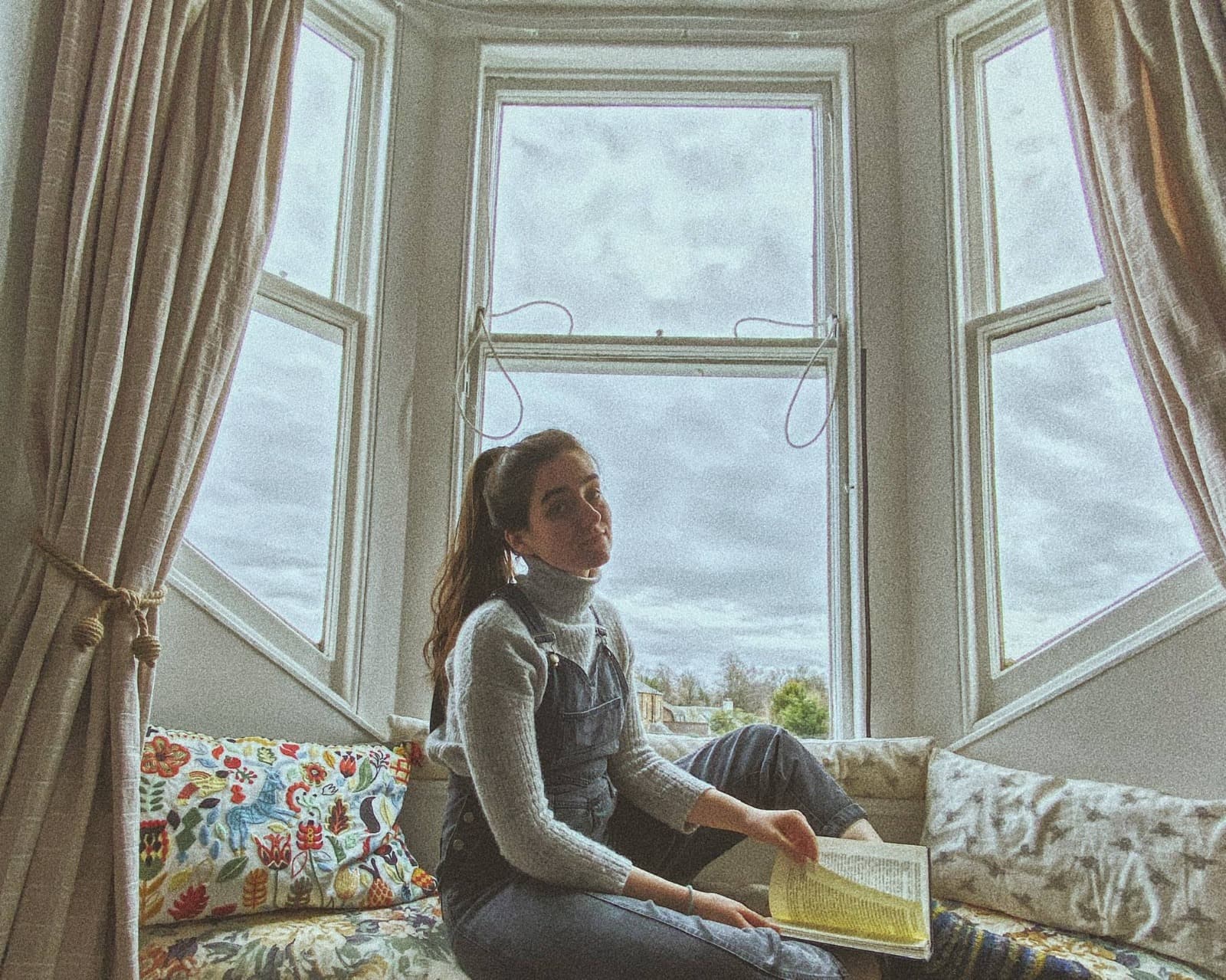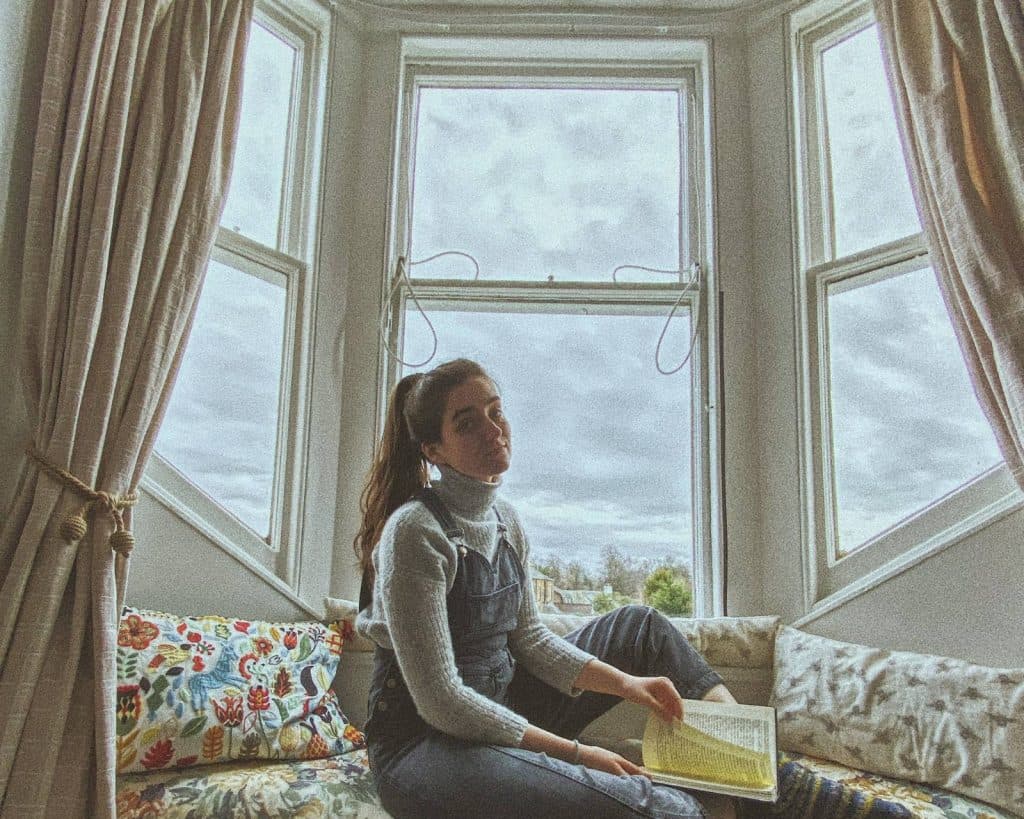
LONG READ: Life in my Living Room: Lockdown Alone

by Victoria Roberts
Nothing forces introspection like isolation. For the millions of people living alone across the UK, this feeling might resonate strongly given the events over the last year and a half. Being one of these people who experienced lockdown alone, I am one of many that have been challenged to face independence in a unique way. Between the ages of roughly sixteen and twenty-six, many young people crave and demand independence. Independence means freedom and liberation from education systems, relatives and childhood homes. I was no different. Over and over again I was told that the time to ‘find myself’ is during my twenties. That’s when young people are expected to go out with friends, fall in and out of love, travel and let loose. Well, having been in my twenties for a whopping three years (and having spent half of that time in lockdown) my experience has been somewhat different, to say the least. In 2019, having finished three miserable years of undergraduate study and having thankfully graduated, I decided to up sticks and move by myself to a completely new city in order to start afresh. I was there for postgraduate study but also to live, eat and be merry. It should have been joyfully independent, and it was, but never in the way that I had imagined.
I decided to live alone, an act that plunged me head-first into the deep end of independence. My experience at university had prepared me to some extent, but the whole responsibility of living as a fully fledged adult was something entirely new to me. I assured myself that I would make new connections and fill the unfamiliar space of my new flat with loudness, laughter and love in no time. This turned out to be surprisingly true. I began my year of study, as is custom in the UK, with Freshers Week. For seven days, new students had the chance to settle down and live it up. We could orientate ourselves to our new campus, and then promptly disorientate ourselves with alcohol. Within 72 hours I had met a group of girls, who would become my closest friends over the course of the next few months, and I’d even met a boy, with whom I would spend the next year with. My life had done a full 180-degree turn—thankfully for the better.
Getting to know all these new people and adjusting to university work over the course of my first semester was undoubtedly one of the best stretches of time in my life so far. I had never been happier, more confident and more fulfilled. My weeks were busy and I had complete control over who I saw and what I was doing. I was exceedingly lucky to be living in a beautiful city that surrounded me with a plethora of activities: pubs, bars, restaurants, shops, museums, galleries and more. I made good use of everything on offer. In my new flat, I basked in the usual privileges of living alone, roaming around completely naked and feasting on whatever food I fancied, stacking the dishwasher in exactly the way I wanted: all the things communal living never allowed. If I wanted to dance to One Direction’s greatest hits at 9am or 11pm, I could. On top of that, I had guests over every week and even got on top of cleaning and tidying my flat regularly. It was because of all these things that my flat became my haven.
That was until March 2020 rolled around. I remember sitting alone on my living room floor in front of the TV, watching Boris Johnson announce a national lockdown for the first time. Busy streets became empty. Shops closed their doors. The world became smaller. Almost all of my friends had been international students, and they each left the city one by one to return to their families abroad. I had been living alone for months, but this was the first time I had felt lonely. Suddenly the four walls of my flat felt hostile, and it dawned on me how different my life might be. My world had revolved around studying and social events, both of which seemed near impossible in lockdown. As part of my postgraduate course, we were expected to write our dissertations over the summer. This was an expectation that never changed, even when the world around us did. We just had to figure it out alone.
Routine became totally essential for me. In order to keep on top of my work and mental health, I got up early, ate well and exercised every day. I initiated daily virtual study sessions with a friend and would be on a video call for this every day from 10am-6pm. This call was essential; it was the digital equivalent of turning up to the office to work. It grounded me. We would sit and work silently, or discuss our writing, and help each other as much as we could. Once this was done I would go for a walk, make dinner and hop on another call from 8-10pm with another friend. We would watch trashy TV and chat. The virtual company of my friends stopped me from feeling lonely. My entire life shrunk and moved to phone screens, but I was able to keep socialising and studying and that was all I needed to see me through.
That said, living alone during lockdown did mean that I was finally forced to stop and actually spend time with myself, in a way that I don’t think many people my age do. It felt like I finally had time to breathe, as though getting to know myself was something I had unwittingly been waiting to do but never had the chance to pursue. Whilst most of my peers typically lived in communal house-shares, with a partner, with their family, or a mix of the above, I was not afforded those luxuries. Good company is a luxury, and I see that now. So when the time arose and I was able to see friends face-to-face, I had a newfound appreciation for our time together. My time alone felt very different too since I had to keep myself amused. It was like a bizarre gap year in which I went on a year-long retreat to the comfort of my own front room. I found myself, yet I didn’t need to travel to far-flung corners of the earth to do it.
It goes without saying that lockdown had a unique effect on every person. We all have a story to tell, and I make no claim that mine is the most important. For many, the last eighteen months have seen devastation. For some that has meant the loss of jobs, homes, loved ones. For others it has meant being trapped in violent living situations, having financial pressures build up, or a lack of medical or mental health support. None of this is forgotten as I tell my version of events. I recognise my privilege in being able to continue studying and living as I did. It was because of the experience I had that my understanding of independence changed. I had thought that when we became adults we would all just magically unlock the ability to cope entirely by ourselves. That’s absolutely not true. In reality, independence comes from undertaking a huge amount of introspection, it takes knowing and valuing yourself. More than that, it takes motivating, entertaining, comforting and liking yourself enough to be totally content alone. Of course, to some extent, we always need other people around us. Companionship is, without a doubt, an essential part of the human experience. It is with this thought that I recognise the isolated position of so many older people in the UK and across the world, whose voices are not heard as loudly in this conversation because they can’t speak up or don’t know how to get their message across. I think of the people who had to isolate themselves to ensure the safety of their own lives, who weren’t able to video chat for hours a day or stay busy by working or walking. It was a great advantage and privilege to have the ability to speak to my friends so much, and see those I loved when I could. Indeed, it was sheer luck that I ended up with these friends in the first place. These friends gave me so much more than their time — they gave me my sanity and hope. I could never thank them enough.
The second half of 2020 was tough. Like many people, I felt at the end of my tether. I graduated from my postgraduate course (albeit virtually), the remaining few friends I had all moved away and my relationship ended. I hadn’t found a permanent job, and my well-established routine dissipated. More lockdowns and restrictions were introduced. This time was the greatest test of all for my ability to be independent. I was tempted to run away and hide in the shelter of my family home and give up on my independence completely, but I stayed where I was. I forced myself to feel every emotion and sit every day through. That feeling lasted for months. Continuing in getting to know myself during this time was painstaking because I realised I still had a lot of getting-to-know to do. For a long time it felt like I was a stranger to myself again. Eventually, after lots of self-compassion and crying, it all clicked into place, and I could stand on my own two feet once more. Now I am able to enjoy my own company, and my relationship with myself is only getting better and better. I’ve made new friends, found new opportunities and enjoy even the smallest of luxuries. I learnt that I actually love being outdoors.I fell back in love with writing and reading. I began to properly understand feminism. I thought that last summer was the pinnacle of my life, but I was wrong. The confidence I had back then is unparalleled to the confidence I have now. So, now the different countries of the UK have eased their restrictions and opened more fully, I feel refreshed and ready to face the world again. I will happily face what may come my way, and I trust that I can do it alone.
Author: Victoria Roberts is a freelance writer based in Scotland. Victoria has a keen interest in the written word, especially in poetic or fictional forms. She is a big fan of all things medieval and feminist.
Back to home.